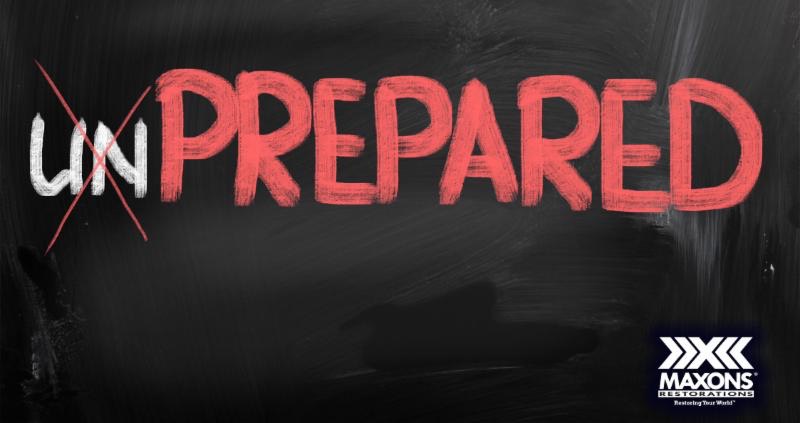Be Prepared No Matter What Matthew Does
There’s a possibility that the fifth Atlantic hurricane of the season might be heading towards New York. Hurricane Matthew is currently a category 4 hurricane and is passing through the Caribbean.
Regardless if it hits us or not there is no time like the present to review your companies disaster plans.
5 Days Before Storm Conditions
- Notify employees of the potential for severe weather and to be prepared for the emergency plan possibly to be implemented.
- Inspect the roof and grounds for loose debris, which may become a hazard in high winds. If staff or temporary help is available, begin removal of the debris, otherwise the removal may be done at the 72-hour interval.
- Provide a list of storm tips and needed supplies to help your employees prepare their homes and families.
- Ensure all employees have your business’ designated emergency telephone numbers and key contact other information (i.e., employee emergency wallet card).
72 Hours Before Storm Conditions
- If not completed already, remove or secure all loose roof and ground items, including landscaping that may become wind-borne debris.
- Clear roof drains, gutters and downspouts of debris, to prevent water back-up
- Clean out all debris from outdoor perimeter drains, especially in areas where water may collect such as shipping and receiving areas where the ground slopes towards the building.
- Fill emergency generators with fuel and contact fuel suppliers with anticipated needs for post-storm deliveries.
- Ensure fire protection systems are in proper working order.
- Notify key customers, suppliers, and partners of office/facility closing and contingency plans.
- Make decisions on when to excuse employees so that they have sufficient time to prepare their homes and families, and notify employees of office closure details.
- Make any necessary alternative travel arrangements for employees away on business.
- Customize messages for business’ website, telephone recording, employee intranet, etc.
- Instruct employees with laptops to take them home at the end of each day and confirm that they can connect to your business’ server from home.
- Remind employees to make sure their cell phones are fully charged and that they have a power cord and car charger.
- Advise employees to begin checking your employee emergency hotline and/or company intranet/website for updates on the status of your office/facility.
48 – 24 Hours Before Storm Conditions
- Make sure all employees with calling responsibilities have the most updated version of the company telephone call list and have it in multiple formats (hard copy, electronically, etc.).
- For hurricanes and other high wind events, install window protection; if window protection is unavailable, close all window blinds, and cover office equipment with plastic sheets or tarps.
- Close and lock all office doors, especially perimeter offices.
- If you expect your building to be exposed to flooding or storm surge, seal all water entry points such as utility penetrations into the building and install flood protection including first-floor drain plugs.
- Conduct full/partial shutdown procedures. If volunteers are to remain onsite during the storm, make sure they can remain in a safe and secure area. If conditions permit, instruct them on how to monitor, document, and mitigate against leaks and water infiltration in critical areas with vital equipment.
- Advise employees to check the status of your office/facility at least twice per day.
- Disconnect all electrical equipment and unplug from power source.
- Place a “Closed” notice on office/facility main entrance.
During & Immediately After The Storm
- Update employee emergency hotline and/or company intranet and company website with postings on the status of your operations.
- Activate the company telephone call list process, in order to contact all employees regarding the status of your office/facility.
- Designate times for key staff members to call into conference calls for situation overviews.
Recovery
- Designated personnel should return to the facility, assess conditions, document damages, and notify the emergency operations teams of their findings.
- When it is deemed safe, designated personnel should begin start-up procedures.
- When all safety and operational concerns are addressed and an “All Clear” is provided, employees can return to work.
- Take an overall inventory, including photos of all damaged property, and report damage and related expenses to your insurance company.
- Employees returning to the building should be instructed to examine their work area, test all office equipment and report findings back to the designated staff contact.
- Notify key customers, suppliers, and partners of office/facility re-opening and any necessary property or operational changes resulting from storm damage.
Stay safe,



